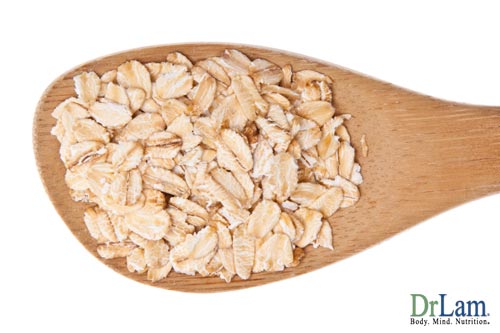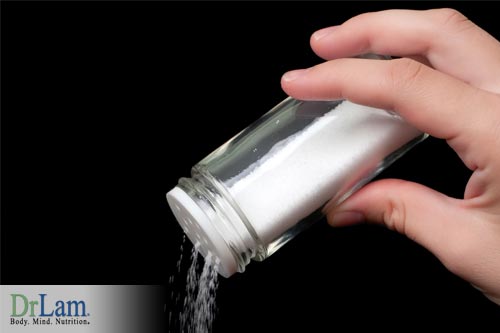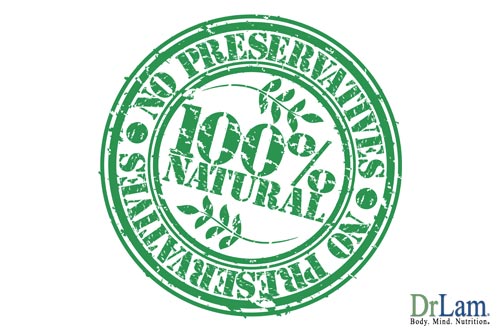 Those suffering with adrenal fatigue are painfully aware that there are limits to what their body can handle. With adrenal function compromised, their bodies cannot handle the same level of stress as a healthier individual could. This affects everything from exercise capacity to their daily routine and even dietary tolerances. With respect to diet, adrenal fatigue sufferers attempting to achieve recovery need to follow an adrenal fatigue diet that has some key differences compared to a normal diet.
Those suffering with adrenal fatigue are painfully aware that there are limits to what their body can handle. With adrenal function compromised, their bodies cannot handle the same level of stress as a healthier individual could. This affects everything from exercise capacity to their daily routine and even dietary tolerances. With respect to diet, adrenal fatigue sufferers attempting to achieve recovery need to follow an adrenal fatigue diet that has some key differences compared to a normal diet.
Let’s first make a distinction that the typical modern diet tends to contain a lot of refined sugars and carbohydrates, high fructose corn syrup, and preservatives; versus a healthy diet with high quality nutrition from healthy ingredients, low in artificial sweeteners and without preservatives. It should be clear that those on an adrenal recovery program should already be trying to eat as healthy a diet as possible. In this article we’ll be exploring some of the key differentiating factors that set the adrenal fatigue diet apart from even a healthy diet that would contain fruits, vegetables, whole grains, proteins and essential fatty acids.
Bananas, dates, oranges, raisins and dried figs; what do these fruits have in common? They all contain high amounts of potassium, which is something you want to avoid in adrenal fatigue. Potassium in the body is balanced out by sodium, and these two nutrients need to be in balance for a healthy physiology.
In adrenal fatigue, the weak function of the adrenal glands leads to a lower production of aldosterone. Aldosterone regulates fluid in our body by signalling the kidneys to retain sodium; but when aldosterone levels are low, sodium is lost from the body, leaving less to balance out potassium. In this situation, eating foods with high potassium content will cause an even greater imbalance, so definitely watch your potassium intake. This also leads us into number 2:
 Today, conventional wisdom about healthy diets tell us to decrease our salt intake because it can raise blood pressure. However, in the case of adrenal fatigue, we want to take in more sodium for the reason that we want to balance out the sodium-potassium ratio. It’s okay to salt your food a bit more liberally, or if you don’t like too much salt in your meal, add some salt to a bottle of water that you sip from throughout the day.
Today, conventional wisdom about healthy diets tell us to decrease our salt intake because it can raise blood pressure. However, in the case of adrenal fatigue, we want to take in more sodium for the reason that we want to balance out the sodium-potassium ratio. It’s okay to salt your food a bit more liberally, or if you don’t like too much salt in your meal, add some salt to a bottle of water that you sip from throughout the day.
In the social consciousness, whole or multi-grain toast and orange juice are often associated with a healthy breakfast. In a constitutionally healthy body, they help provide some quick energy via carbohydrates and sugar to get the day started quickly. Unfortunately, adrenal fatigue compromises the body’s ability to handle these refined sugars and carbs that require quick processing. Instead of getting a kick of energy that tapers into your daily rhythm, you’re just as likely to spike your blood sugar, then experience a drop, and potentially even crash the adrenals. For advanced cases of adrenal fatigue, the body may not even be able to tolerate whole fruits. Speaking of foods that are too stimulating:
This one should be easy to understand. There’s already been a lot of research done with respect to caffeine, and popular opinion is catching on the fact that caffeine is addictive and bad for you in the long run. But what about those days when you just need a quick pickup or boost for your mental acuity? After all, some research even suggests that coffee has some positive health effects too. Surely a cup of coffee once a week or so won’t hurt.
It probably doesn’t surprise you that caffeine can also trigger a crash because, like sugar, it pushes the body into an energy expenditure mode it can’t sustain. There’s no room for error when recovering from adrenal fatigue, as any crash can become a serious setback and retard your recovery.
One relatively subtle symptom of adrenal fatigue is the development of food allergies and sensitivities. These are not typical allergies in the sense that they are not instantaneous effects. You will not stop breathing or go into anaphylactic shock. However, the body does react internally and you will start to feel more tiredness and fatigue, and may even droop into a crash. Dairy and gluten are common sensitivities that develop; however, depending on the unique physiology of your body, you may or may not experience these sensitivities and will likely run into others. Be vigilant of your adrenal fatigue diet and mix up your meals with variety so you can tell if something is dragging you down.
 It’s quite well known that the preservatives and other synthetic compounds introduced in the modern food industry have many detrimental and downright dangerous effects on the body. Anyone serious about their health makes it a point to stay away from processed foods whenever possible.
It’s quite well known that the preservatives and other synthetic compounds introduced in the modern food industry have many detrimental and downright dangerous effects on the body. Anyone serious about their health makes it a point to stay away from processed foods whenever possible.
This is even more key for those trying to recover from adrenal fatigue; and the reason is these compounds can have an immediate and profound negative effect on the body. The liver, already compromised by adrenal fatigue, has enough to deal with in the day-to-day course of events; an additional load of metabolic byproducts such as from preservative laden foods can stress the liver, stress the body, and - I think you can see where I’m going with this - may lead to a crash.
So, some of these adrenal fatigue diet principles are applicable to eating healthy in general, but the reasoning behind these in particular is rooted in the physiology of adrenal fatigue. In order to recover successfully from adrenal fatigue, you must minimize stress on the body, and that includes what you put in your mouth.